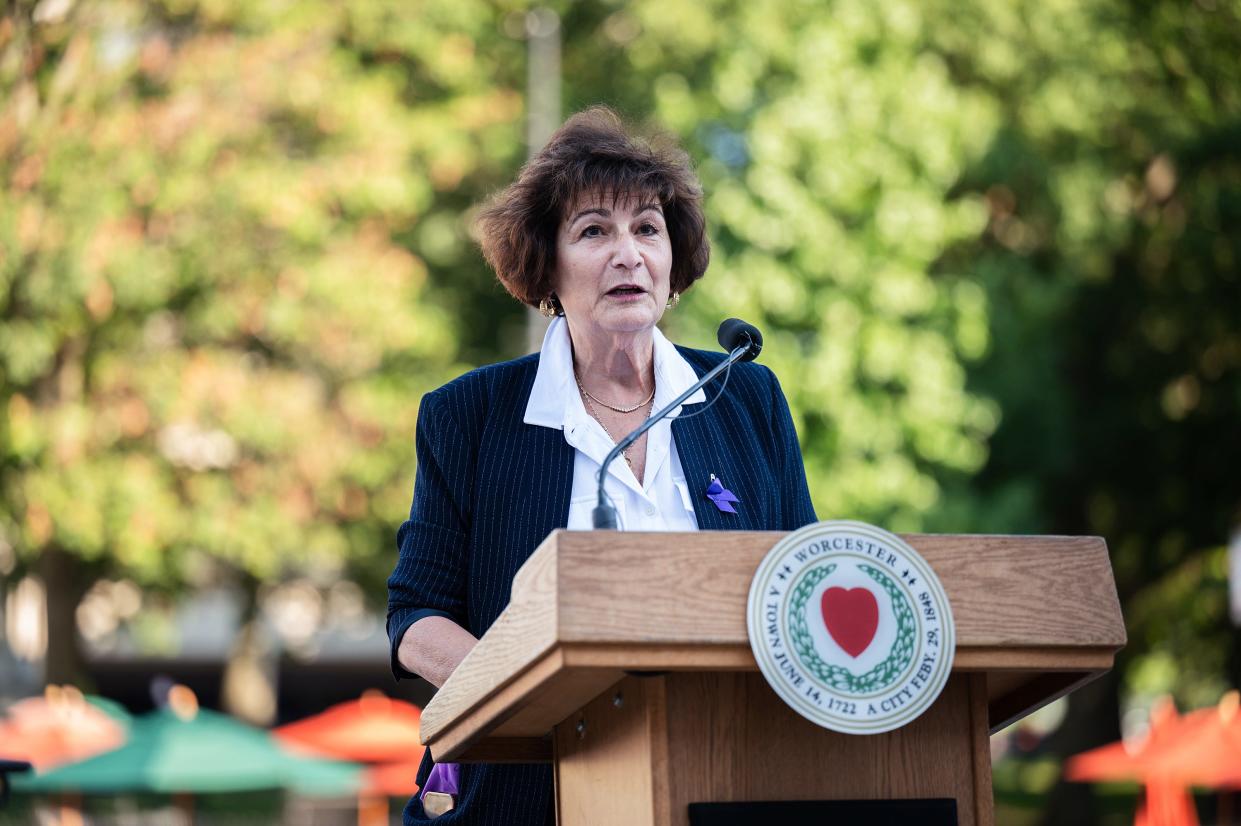Experts: Fears of being sued keeps overdose prevention centers from coming to state

WORCESTER – For the first time, the state’s Department of Public Health said it supports so-called overdose prevention centers. Wednesday's announcement backs the centers where illicit drug users are monitored while taking drugs to prevent overdoses and deaths.
One of Worcester's top health officials agrees with the state's announcement.
"It's a tool that we should be using to prevent overdose mortalities," said Dr. Matilde Castiel, Worcester's commissioner of health and human services.
Community organizations may be talking about how to bring these centers to Worcester, said Castiel, but what's holding things up is state lawmakers haven't legalized them. Until that happens, anyone who works in one could potentially face criminal prosecution.
"Cities in Massachusetts may be ready to go, but they're waiting for state approval. Doctors and others could be sued, and the state has to protect these centers so that doesn't happen," she said.
The state health department also noted this legal impediment in its announcement. Currently, the federal government outlaws them.
Here’s how the centers work: Users arrive with their own drugs, and medical professionals monitor them while they’re shooting up. The goal is to stop overdoses and deaths, especially since many deaths happen when someone takes a drug while they're alone. Users are also referred to recovery and treatment services, if they want them.
Legal liability biggest hurdle
Legal liability is the most significant barrier to bringing overdose prevention centers, also called supervised injection sites, to Massachusetts, said state Sen. Julian Cyr, D-Truro.
Cyr is Senate chairman of the state’s Joint Committee on Public Health, and said he filed a bill to establish a pilot program that calls for setting up several centers on an experimental basis.
Another bill filed by Cyr would expand the state’s Good Samaritan Law to make those affiliated and working in the centers immune from prosecution because they’re helping someone in a medical crisis. As Cyr sees it, the state health department's study that supports the centers means the proposed measure to expand the Good Samaritan Law could unlock the legal impediment.
"It’s encouraging the Department of Public Health’s feasibility study provided direction in how the Legislature can move forward to realize harm reduction sites in Massachusetts,” said Cyr. “I’ve come to the conclusion that you may not need a bill to authorize a pilot program in order to realize harm reduction sites. But you certainly need legislation to provide liability protections.”
Why none in Mass.?
It's been four years since Castiel served on the 2019 Massachusetts Harm Reduction Commission, which called for overdose prevention centers. When asked what is taking state lawmakers so long to green light safe injection sites, Castiel said people don’t fully understand how they work.
“I think (people) are not comfortable with it. There’s a stigma around addiction,” said Castiel. She noted some people wrongly think the centers enable drug users. “(People) don’t understand the concept of harm reduction, that it’s preventing people from dying."
So will Massachusetts and Worcester ever get these sites? Castiel believes it will happen, in time: "People will come around, just give them time to understand what they're about."
Don't be in a rush
When and if the time comes that state lawmakers legalize the centers, Castiel said Worcester shouldn’t be in a rush to be the first Massachusetts community to have one. It’s better, she said, to wait for another city or town to be the first, and then consult with those communities to see what worked and didn't work.
Both Castiel and state public health officials point out that no deaths occurred at a sanctioned overdose prevention center, including those operating overseas and two in New York City. The ones in New York are the only centers currently operating in an official capacity in the U.S.
Castiel also noted that the need for these centers comes at a time of rising — and recently falling — opioid-related overdose deaths in Worcester.
Figures provided by Castiel include:
● A 34.3% increase in deaths of Worcester residents from 2021 to 2022. For non-Worcester residents coming into the city in the same time period, there was a 36.6% increase.
● A 19.3% decline in deaths, including Worcester and non-city residents in the city, from 2022 through September 2023.
NY visit: fact-finding mission
Castiel visited one of the New York City sites earlier this year to learn more about them. While they don’t get any federal money because federal law deems them illegal, Castiel said they receive state funds for the support services that happen outside the facilities. Private donations fund all services inside the locations.
Representatives from AIDS Project Worcester joined Castiel on that visit to New York City. Phone calls and an email to AIDS Project Worcester Executive Director Michelle Smith that requested comment on Wednesday’s announcement by state health officials that it's time to bring the centers to Massachusetts were not returned.
State Rep. James O’Day, D-West Boylston, also reportedly joined Castiel on the fact-finding mission to New York City. O’Day did not return calls that requested comment on Wednesday's announcement.
Contact Henry Schwan at henry.schwan@telegram.com. Follow him on X: @henrytelegram.
This article originally appeared on Telegram & Gazette: Worcester health chief Matilde Castiel backs OD prevention centers

